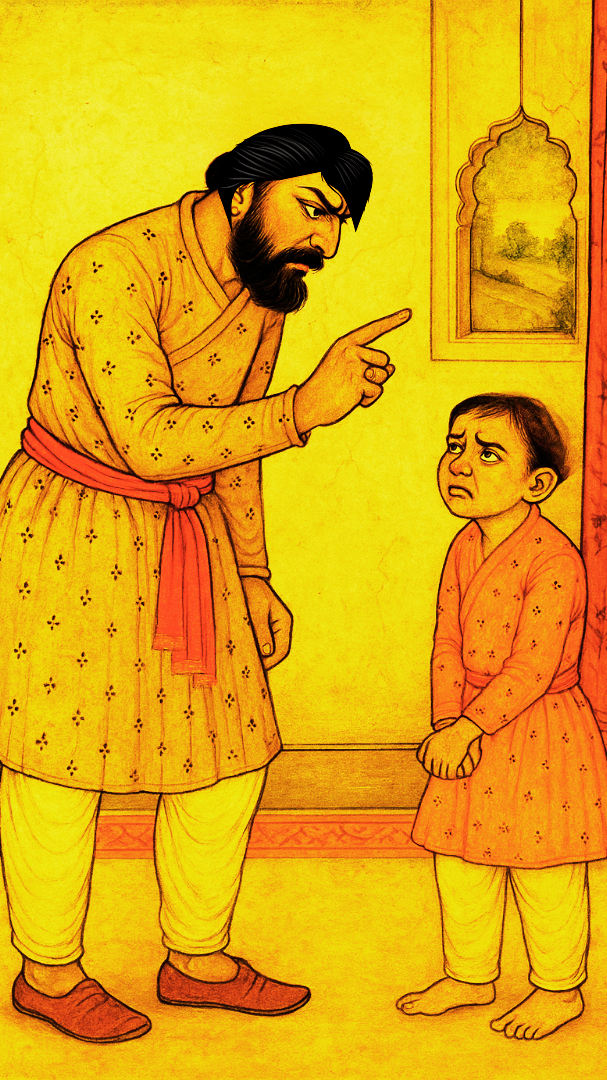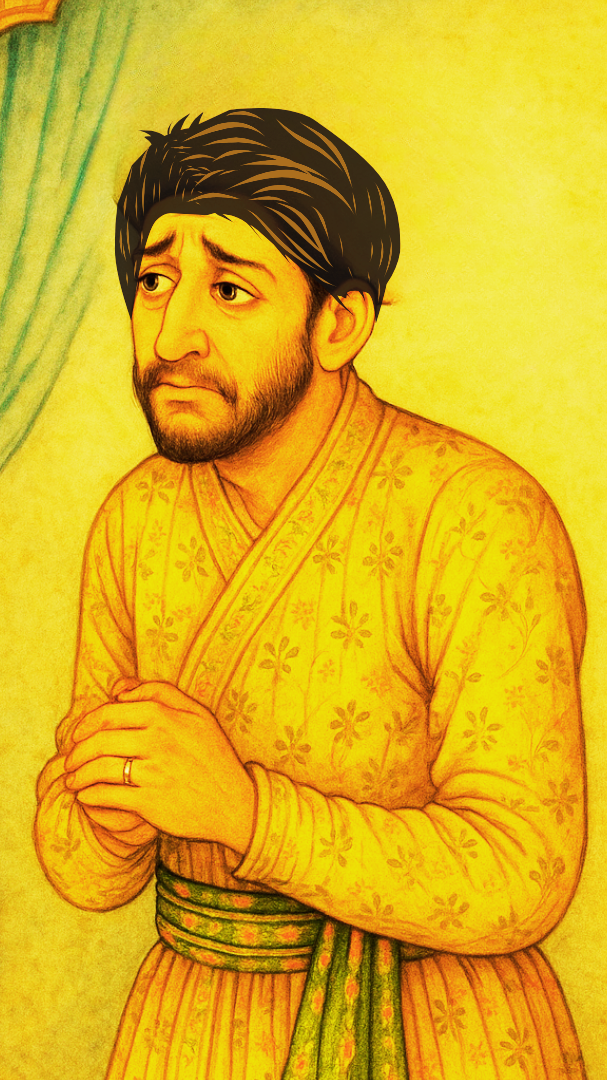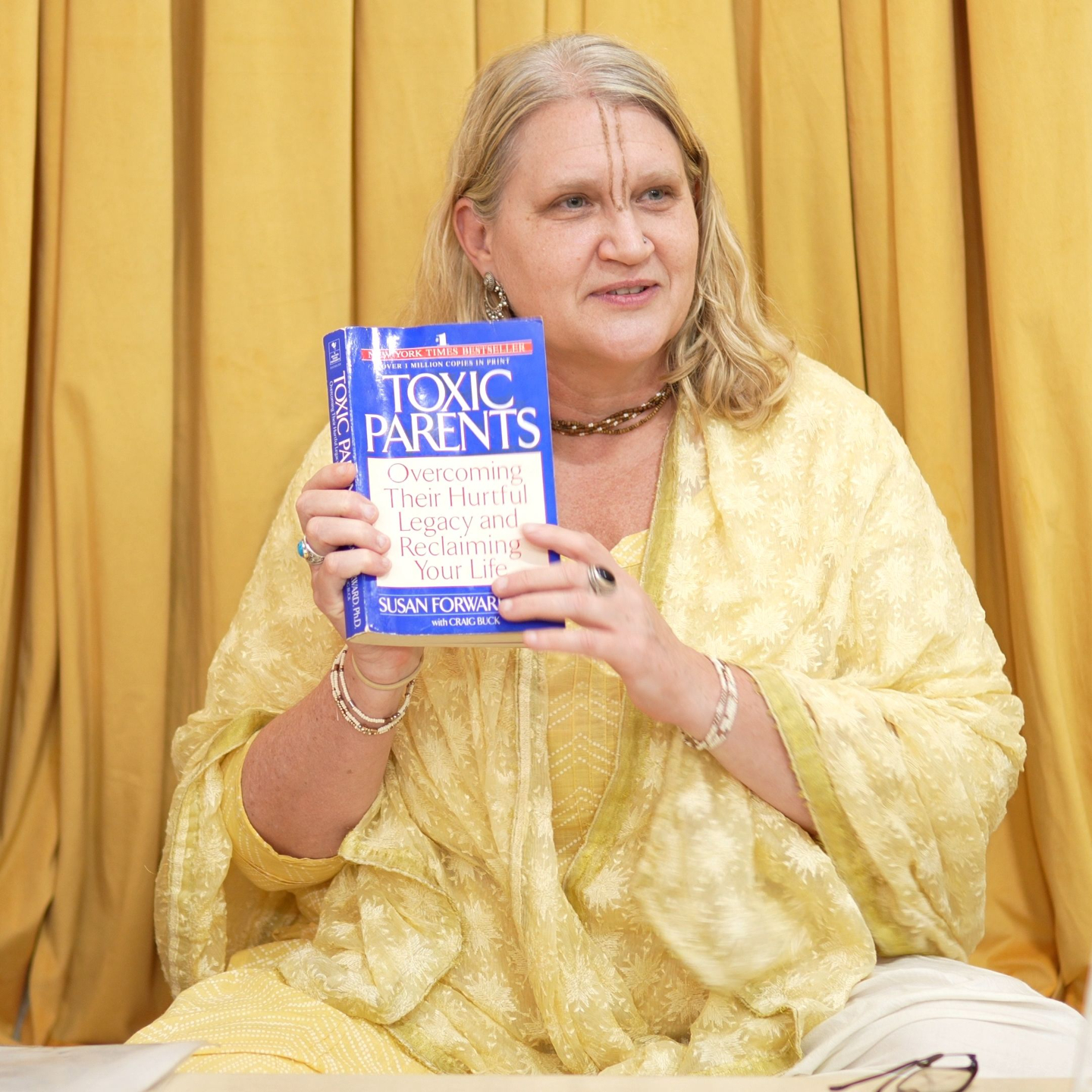
DANDA दण्ड
Authoritarian Parenting Style
Danda parents are strict and controlling, offering high structure but little warmth. They enforce rules rigidly, with minimal room for dialogue, and often rely on punishment rather than guidance. Emotional needs are overlooked, and obedience is prioritized over understanding. Discipline is enforced through fear or shame rather than mutual respect or emotional attunement.
STRICT AND CONTROLLING
This Sanskrit word, Danda (दण्ड) - means "stick," "punishment," and "authority," representing both a physical stick used to hit, and the broader concept of disciplinary control.
Within the system of Vedic Psychology, Danda serves as the Authoritarian parent archetype—a caregiver who polices every boundary, issues top-down commands, and prizes unquestioning obedience. Danda types use a punishment-focused approach, fear-based control, rigid discipline, absolute parental power, and the cold emphasis on consequences rather than warmth or guidance that characterizes this harsh parenting style.
Though Danda types may believe they are instilling discipline and virtue, their heavy hand suppresses the child’s spontaneity and authentic self-expression.
Meet Koshara, who exemplifies a typical Danda Parenting Style. His rigidity arises less from wisdom and more from fear, unresolved anger, or a compulsive need for control. In over-disciplining, he leaves the child tense and self-doubting—internalizing harsh judgement rather than growing within a clear, loving framework.
TOSHAKA - Anxious
The Result of Authoritarian Parenting Style

The Sanskrit word, Toṣaka (तोषक), means one who pleases, gratifies, or seeks to make others happy. The essence of the adult personality formed by authoritarian parenting—often marked by anxiery, fear, rigidity, self-doubt, or repressed emotion is called Toshaka - The People Pleaser. This person may appear obedient, high-achieving, or externally disciplined—but internally, their sense of self (ahankara) is constricted by conditional worth.

How Were You Parented?
Take the Parenting Style quiz to uncover the dominant style of your parent. Trace the roots from your childhood upbringing to the patterns you carry into adulthood.

DEEPEN YOUR STUDIES
Click on the title to learn more
- Toxic Parents Book Club
- The Toxic Father e-course
- My Mother, Myself e-course
- Love & Attachment Styles e-course

